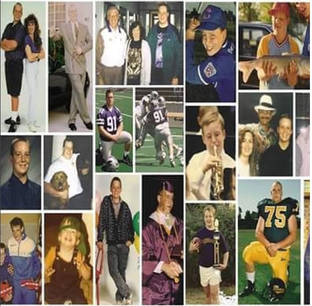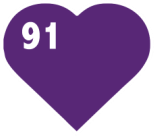
Sudden Cardiac Arrest Awareness month reminds us of that value! In case you haven’t heard yet, October is Sudden Cardiac Arrest Awareness month! Sudden Cardiac Arrest (SCA) is the leading cause of death in the US, claiming more than 350,000 lives each year. SCA can happen to anyone at any time, even in those who have displayed no prior symptoms. Typically, SCA is caused by an electrical or structural problem, but it can also result from infection or a severe hit to the chest.
Over 90% of the time, SCA is fatal. Defibrillation is essential to saving lives, but if this is not administered in the first 6 minutes, the victim will most likely be lost. Chest compression and CPR can also be crucial to bridging the time between SCA and the arrival of an automated external defibrillator (AED).
Risk factors for sudden death are not easy to identify, so being proactive can be key. As the name suggests, these symptoms set quickly and may not be obvious at first. Researchers recently have identified that the majority of victims have minor symptoms such as dizziness, chest pains or shortness of breath, occurring anywhere from four weeks to one hour before the event. Although these may not seem severe, when it comes to matters of heart, they should never be taken lightly.
In Anthony Bates’ case, SCA stemmed from undiagnosed Hypertrophic Cardiomyopathy (HCM). HCM makes the heart muscle abnormally thick and can cause unusual rhythms that can be life threatening for some. It’s the most common cardiac genetic disorder and probably the most well known cause of death among young high school and college athletes. Because this issues leading up to a SCA often goes undiagnosed until collapse, it is crucial be proactive.
Though he’s greatly missed, Anthony’s legacy has led us to save over 29,000 lives saved since his death. We’ve trained over 75 teams to offer heart screenings to youth and adults nationwide. That means over 650,000 hearts screened, and we have no intention of slowing down.
Come celebrate Sudden Cardiac Arrest Awareness month with us at an upcoming screening! Whether you have concerning symptoms, family history or are in the prime of your life, everyone can use a little peace of mind. Check out our events page and book your screening today!
Over 90% of the time, SCA is fatal. Defibrillation is essential to saving lives, but if this is not administered in the first 6 minutes, the victim will most likely be lost. Chest compression and CPR can also be crucial to bridging the time between SCA and the arrival of an automated external defibrillator (AED).
Risk factors for sudden death are not easy to identify, so being proactive can be key. As the name suggests, these symptoms set quickly and may not be obvious at first. Researchers recently have identified that the majority of victims have minor symptoms such as dizziness, chest pains or shortness of breath, occurring anywhere from four weeks to one hour before the event. Although these may not seem severe, when it comes to matters of heart, they should never be taken lightly.
In Anthony Bates’ case, SCA stemmed from undiagnosed Hypertrophic Cardiomyopathy (HCM). HCM makes the heart muscle abnormally thick and can cause unusual rhythms that can be life threatening for some. It’s the most common cardiac genetic disorder and probably the most well known cause of death among young high school and college athletes. Because this issues leading up to a SCA often goes undiagnosed until collapse, it is crucial be proactive.
Though he’s greatly missed, Anthony’s legacy has led us to save over 29,000 lives saved since his death. We’ve trained over 75 teams to offer heart screenings to youth and adults nationwide. That means over 650,000 hearts screened, and we have no intention of slowing down.
Come celebrate Sudden Cardiac Arrest Awareness month with us at an upcoming screening! Whether you have concerning symptoms, family history or are in the prime of your life, everyone can use a little peace of mind. Check out our events page and book your screening today!

 RSS Feed
RSS Feed